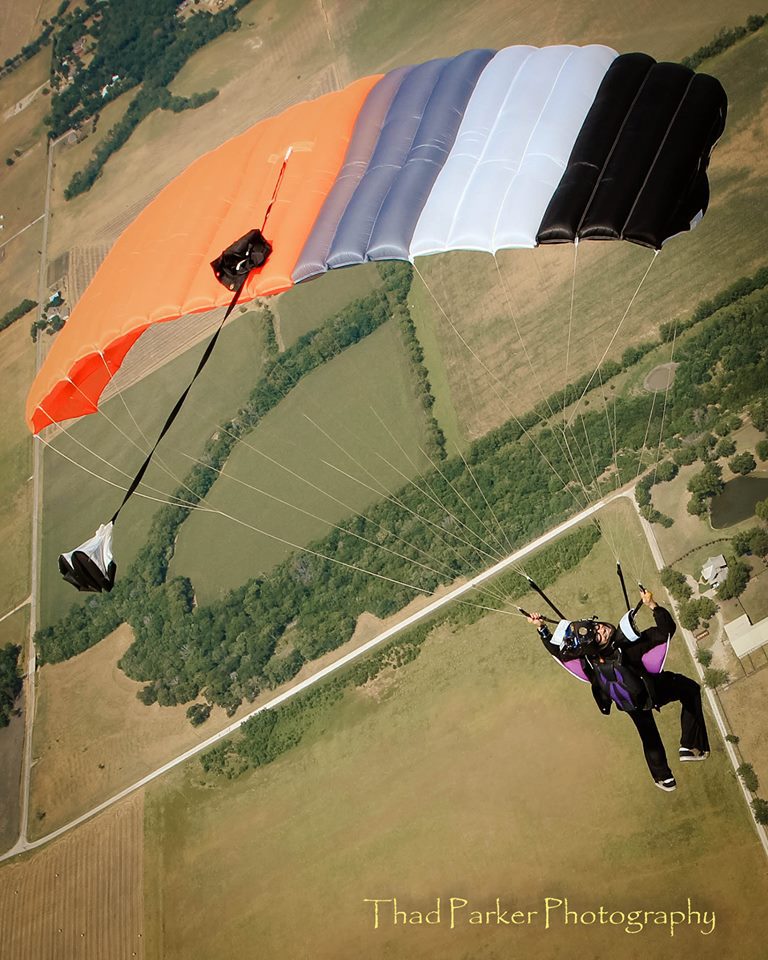Recommended Posts
QuoteWhy not keep the personal autonomy (ie the ability to make a decision between the purchase of gear and the use of gear) in tact and if concerned remain vigilant on the local level at your own dropzone to care for inexperienced skydivers (in case they should make an unsafe decision)?
I highlighted the important part in bold. The vigilance and care provided to the inexperienced jumpers takes the form of not selling them equipment that is beyond their experience/skill sets.
Safety in skydiving needs to be in the form of 'action' and not 'reaction'. If a potentially unsafe situation is allowed to exist until such time that it proves itself to be unsafe, then an incident has already takes place and damage has been done. You might be able to 'clean up' the situation moving forward, and prevent another incident or further damage, but what's done is done and in the case of incidents or injury, that's not OK.
The idea is to act before a situation can manifest itself into an incident. Plan your jumps ahead of time, and ensure that every facet of that plan, the who, where, when, what, etc, all meet the generally accpeted norms for what would be considered 'safe'.
No joke, god help the people who actually have to jump with you. Time and time again, you have proven to have a veiwpoint that is greatly skewed away from what I like to call 'reality', and sooner or later it's going to bite you in your real ass, and even though I'm not a religous man, I literally pray that you don't take anyone down with you when the time comes.
rifleman 70
A classified advert is legally an invitation to treat not an offer for sale (Fisher v Bell [1961] and confirmed by Partridge v Crittendon [1968]). The seller makes an invitation to treat (negotiate) by placing the ad and the buyer makes an offer to buy at the stated price. It is then up to the seller as to whether he accepts the offer and creates the contract. In this case the seller was quite within his rights to refuse to sell the item based on his conversation with the buyer.
FB # - 1083
Quote+1
A classified advert is legally an invitation to treat not an offer for sale (Fisher v Bell [1961] and confirmed by Partridge v Crittendon [1968]). The seller makes an invitation to treat (negotiate) by placing the ad and the buyer makes an offer to buy at the stated price. It is then up to the seller as to whether he accepts the offer and creates the contract. In this case the seller was quite within his rights to refuse to sell the item based on his conversation with the buyer.
since we all know that responsibility strictly follows legality
wolfriverjoe 1,523
QuoteDZ.com is full of these cashiers check scammers. DO NOT ACCEPT A CHECK of any kind.
That isn't an accurate statement (not the scammers part, the don't take a check part).
I've done business using checks issued by US Banks and had no problems. My bank can confirm that the check isn't counterfeit within a day or two and away I go.
The scammers usually counterfeit checks from banks not in the US and those checks can take days or weeks to come back as fake.
I've even done stuff with personal checks. I just make it perfectly clear that I'm not shipping stuff out until the check clears. My bank is good about this and will notify me right away when the check has cleared. Which has gotten faster than years ago, but can still take a week or so.
Checks aren't automatically bad. You just have to understand how they can be used fraudulently and take precautions against it.
Western Union is the same thing. Not automatically a scammer, but you have to be very, very careful because the scammers use it so much.
"~ya don't GET old by being weak & stupid!" - Airtwardo
hackish 8
-Michael
Just out of curiosity, why are you getting out of the sport?
You mentioned that you'll be out for the next 18 years or so? Having kids?
:)
Zlew 0
QuoteI'll try to scam him back then.
Anyway, is Paypal always a safe bet?
Always watch out for scams when selling something online. I almost got hit with a pay pal scam a few years ago. The Cliff's notes version is they sent dummy e-mails that looked like fund transfer verifications from Paypal (looked real, right return addresses etc.). After a closer look, and logging into my paypal, I found that no funds had moved, and the e-mail was bogus/scam.
Do or do not, there is no try -Yoda











Definitely.
Elvisio "THIS" Rodriguez
Share this post
Link to post
Share on other sites